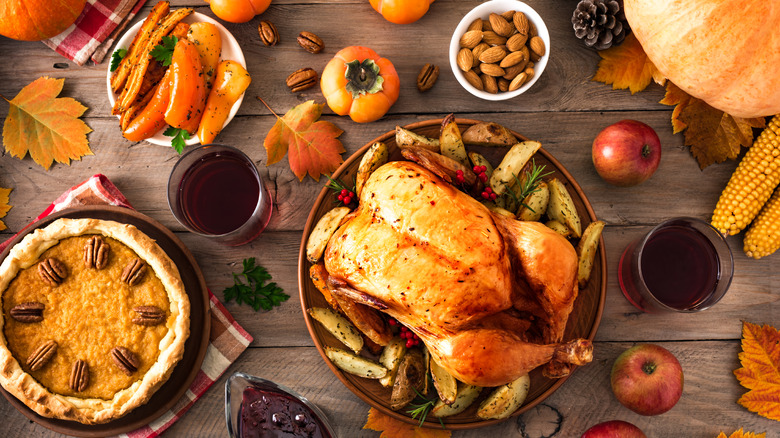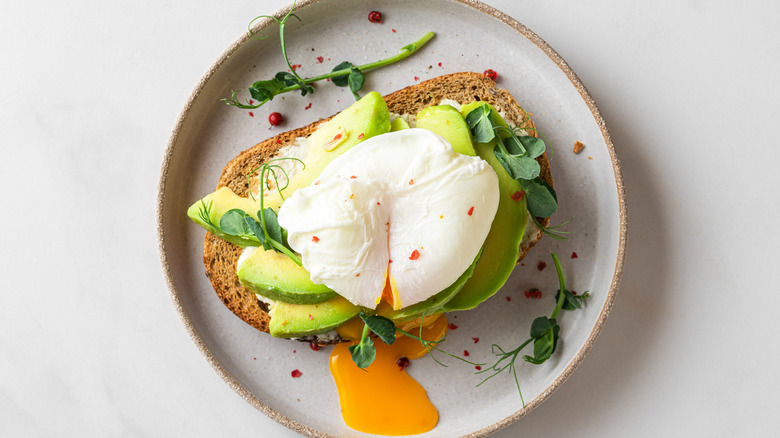Should You Really Skip Breakfast On Thanksgiving Morning?
We've all heard of intermittent fasting, which calls for people who want to lose weight to skip a meal and fast and allows for meals to be taken between eight to 10 hours a day, per The Washington Post. We've also heard people say they want to "bank their calories" ahead of a big meal, which involves treating calories like cash by putting an allocation aside because there is either the plan or the intent, to consume more food later in the day, per Muscle and Strength.
So it may not be surprising to hear about people who decide the only way they're going to get through Thanksgiving day is to skip a meal — typically breakfast — in order to do justice to the feast that lies ahead, particularly if they're anticipating a special turkey, favorite sides, and desserts. After all, as the Calorie Control Council estimates Americans can knock back anywhere from 3,000 to 4,500 calories during the holiday feast, per Consumer Reports.
But as Kacie Delong, registered dietitian at kencko, points out, skipping breakfast may be the worst way to get your body ready for the party ahead. Delong says, "Eat breakfast as you normally would any other day on Thanksgiving morning! This means a balanced breakfast with protein, carbohydrates, and fats. Our bodies still need regular nourishment on holidays."
A registered dietitian advises a balanced breakfast
Kacie Delong, MS, RD, LD, advises that eating a balanced breakfast "will prevent you from becoming overly hungry later in the day, which can cause irritability and lead to overeating at the next meal. Scrambled eggs with whole wheat toast, avocado, and berries is a great breakfast." Healthline also says eggs are a great way to start the morning because they help you feel full, and they tend to help cut the amount of food you end up eating later in the day.
And if your eyes run away with your stomach, there's no reason to feel any guilt about indulging. As Delong points out, "Thanksgiving is one day, so try to let yourself enjoy those foods and the company of your loved ones. Drink some water and move on with your day, eating again at your next meal when you are hungry."
There are other ways of coping with the pressures of meeting family and friends during Thanksgiving, particularly if comments are being directed at the food on your plate. Delong wants you to remember that "foods do not have a moral value, there are no 'good' and 'bad' foods. How you choose to respond is totally up to you and what mood you are in! You can politely excuse yourself from the conversation, change the subject, or you may choose to speak up and let the person know why those comments are harmful to you."

